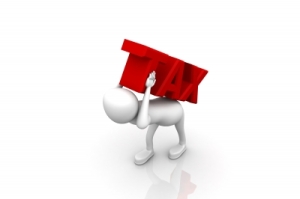California adopted Proposition 13 in 1978. The initiative was politically charged and was called the Peoples Initiative to Limit Property Taxes. It limited the amount of the property tax percentage that could be assessed as well as the amount property taxes (2% per year). It is a subject that a book could be written about as it is considered the “third rail” of California politics, but I will limit my comments to the effects it has on Base Year leases, and attempt to be non-partisan, for once.
“All California leases should have Prop 13 protection”

Ideally, from a tenant’s perspective, all Base Year leases should have “Prop 13 or tax increase Protection.” What does this mean and why is it important? Prop 13, or tax protection provides that an increase in real estate tax pass-throughs (in a base year lease) is limited. The actual limitation is not the same in every lease as most leases and ownership situations vary significantly. The reason the concept exists is that Proposition 13 holds real estate taxes artificially low in California. As I described in my first blog on auditing base years, an artificially low base year can result in huge pass-throughs in Operating expense and Real Estate taxes in subsequent years. Prop 13 can have the same unintended negative effect on the RE tax component of a base year lease.
“Without protection, Tax Pass-throughs can get out of control”

The same risk exists if a tenant leases a building from a long term owner that has a very low tax basis in the building. If that owner were to sell the building subsequent to the base year in a good market with high prices, the tenant will experience a huge uptick in tax pass-throughs.The best way to describe this is with an example. Let’s say that a merchant developer buys land and builds an office building, leases the building and then sells the building two years later. Let’s assume that the entire project cost is $250 per square foot and the sale price is $400 per square foot. The base year tax expense would most likely be about $250 per square foot. If the sale date is in a year subsequent to the base year, and the tenant does not have some sort of tax protection, the tenant will be responsible for the increase in taxes over the base year, in this case about 1.2% of the $150 per square foot developer gain, per year for the rest of the lease (or about $.15 per square foot per month, compounding annually!).
“How can this risk be eliminated?”
Only well thought out lease negotiations can protect a tenant from this risk. When the market is extremely tight it can be difficult to obtain tax protection, but at a minimum the foreseen increases can be mitigated through thoughtful negotiations.
“And don’t forget about Prop 8.”
No, not the gay marriage amendment! That has nothing to do with leases, as far as I know… There is another prop 8 that allows for the temporary downward adjustment of real estate taxes. This can also have a deleterious effect on the base year real estate expense in the same manner of any other non-normalized (or grossed up) base year expense.
